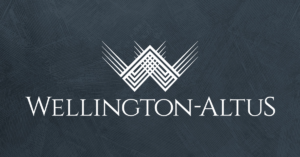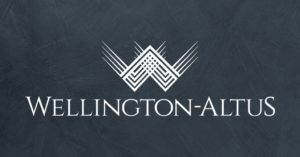The First Home Savings Account (“FHSA”) was introduced in the 2022 Federal Budget to address the increasing difficulty Canadians are experiencing in buying a first home due to rising real estate values. The FHSA is intended to help Canadians save and fulfill their dreams of home ownership.
What is an FHSA?
An FHSA is a registered account that provides the opportunity for Canadians to save up to $40,000 on a tax-free basis to put towards purchasing their first home in Canada. It combines the benefits of tax-deductible contributions as with a Registered Retirement Savings Plan (“RRSP”) and tax-free withdrawals as with a Tax-Free Savings Account (“TFSA”).
Who can open an FHSA?
To open an FHSA, an individual must be:
- Resident in Canada;
- At least 18 years of age; and
- A first-time home buyer (i.e., has not lived in a housing unit that they or their spouse/common-law partner owned at any time in the calendar year the FHSA is opened or in the prior four calendar years).
When to open an FHSA?
Opening an FHSA and contributing as much and as soon as possible is a good strategy to generate significant tax-free growth on savings for the purchase of a first home. However, consider delaying opening an FHSA if a home purchase is unlikely within the maximum 15 year period that an FHSA can remain open.Contributions to an FHSA
Like the RRSP, contributions to an FHSA are tax deductible, reducing the contributor’s taxable income. An individual:
- Has an annual contribution limit of $8,000 per year.
- Can carry forward unused contribution room, up to $8,000.
- Has a maximum lifetime contribution limit of $40,000.
- May have multiple FHSA’s but must adhere to the contribution limits on a combined basis.
- Like other registered plans, a 1% penalty tax will apply on a monthly basis to contributions in excess of FHSA limits.
- Unlike other registered plans, the FHSA must be opened in order for contribution room to begin accumulating, it is not automatic.
Contributions to an FHSA are deductible in the calendar year in which they are made, however contributions can be carried forward and deducted in a future year. As well, unused annual contribution room up to a maximum of $8,000 can be carried forward and used in a subsequent year.
Other key FHSA contribution details:
- If funds are borrowed to contribute to an FHSA, the interest will not be deductible for income tax purposes.
- FHSAs can only hold “qualified investments” which includes most publicly traded securities, mutual funds, GICs, and certain government and corporate bonds.
- The legislation allows for amounts to be directly transferred from an individual’s RRSP to their FHSA within the annual and lifetime contribution limits. However, amounts transferred from an RRSP to fund the FHSA will not generate an additional tax deduction and reinstate RRSP contribution room.
Withdrawals from an FHSA
Like the TFSA, the FHSA allows the withdrawal of funds on a tax-free basis. To qualify, all of the following must be true:
- The individual is a resident of Canada throughout the period between the withdrawal from the FHSA and the acquisition of the qualifying home.
- A written agreement is in place to buy or build a home in Canada before October 1st of the year following the date of the withdrawal.
- The individual intends to occupy the home as their principal residence within one year after acquisition.
- The withdrawal is made within 30 days of acquiring the qualifying home.
Provided the individual meets these conditions, the entire amount of available FHSA funds may be withdrawn tax-free in a single withdrawal or in a series of withdrawals.
If amounts from an FHSA are withdrawn and not used to purchase a qualifying home, the amount of the withdrawal will be included in the income of the individual and taxed at their marginal rates.
One notable aspect of the legislation is the ability for an individual to make use of both an FHSA withdrawal and a Home Buyers’ Plan withdrawal in respect of the same qualifying home purchase. Combining the FHSA and the HBP potentially allows a qualifying individual to save $100,000 ($40,000 FHSA + $60,000 HBP) plus any growth in the FHSA as a down payment for a first home. Layer on savings in a TFSA, and there is significant savings opportunity with tax-free growth for the first time home buyer.
Beneficiary designations
As with other registered accounts, it is possible to designate a beneficiary or successor holder (for spouses/CLPs) of an FHSA in the event the holder dies. Designations can be made in the holder’s will or, except in Quebec, in the FHSA contract. However, the latter option will only be available once the relevant jurisdiction updates its laws to allow designations on FHSAs outside the will.
FHSAs for spouses and common-law partners (CLPs)
Each spouse or CLP can open their own FHSA. For couples saving for a first home, they can potentially double their savings by each contributing to an FHSA. Beware, however, if one spouse or CLP is not a first time home buyer, that may impact the other spouse’s/CLP’s eligibility to open an FHSA.
Closing or Winding-up an FHSA
An individual’s FHSA will cease to be an FHSA on December 31st of the earliest of:
- The 15th anniversary year of the individual first opening an FHSA;
- The year the individual turns 71 years old; and
- The year following the year of a first qualifying withdrawal from an FHSA (as discussed above).
Within certain limitations, savings not used to purchase a qualifying home can be transferred on a tax-free basis directly into a RRSP/RRIF or withdrawn on a taxable basis.
Example: A 30-year-old individual opens their first FHSA in 2023 and purchases their first home in 2029. All their FHSAs must be closed by the earlier of:
- December 31, 2030 – the end of the year following the year of withdrawal;
- December 31, 2038 – the end of the 15th anniversary year; or
- December 31, 2064 – the end of the year the individual turns 71.


